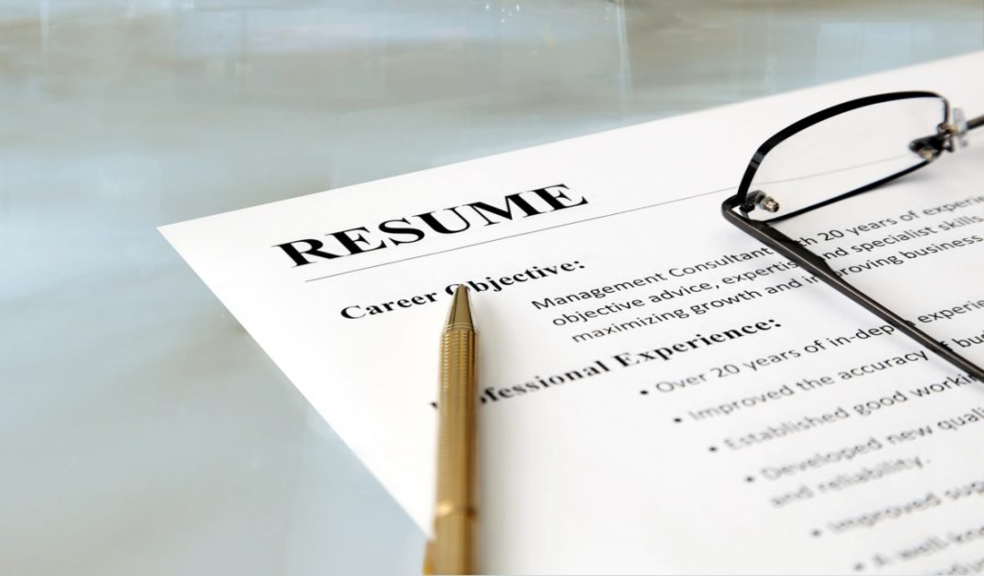
How to Write a Functional Resume
Writing a functional resume is a skill that's essential for anyone who wants to get a job. And if you want to land your first job, it's even more important. When writing a resume, focus on what you accomplished in each position—not how many hours you worked or how much money you made at each company. This helps potential employers see how your skills are a match for their needs and gives them an accurate assessment of how strong your career track is (or isn't).
Focus on your professional achievements and past accomplishments.
The first thing to remember is that your resume should be written in a professional tone. While you may think it’s okay to use a personal voice, this can make it difficult for hiring managers and recruiters to read your resume and find the information they need. You want them reading from start to finish, so keep this in mind when writing!
Your goal should be for the reader of your resume not only understand what you did but also why you did it. If you are asked about specific examples of how something was accomplished or what skills were used, be sure those details are clear on paper—they will help convince an employer that these accomplishments were important enough for them (and therefore worth hiring).
Use bullet points to communicate your skills, experience and accomplishments.
Bullet points are a great way to communicate your skills, experience and accomplishments. They're easier to read than long paragraphs and they help you focus on what's important. As such, they can be used in place of pronouns (you, he) or repeated information (you have experience in sales). Bullet points also make it easier for employers to skim through your resume and get an idea of what type of person you are as well as how experienced you are at doing the job for which they're hiring someone else.
Avoid using pronouns for consistency.
Pronouns are words that replace nouns and pronouns, like I, me, my etc. In the employer's mind, this makes the resume easier to read because there is less information to process at once. However, it can also cause confusion if you use a pronoun more than once in your resume or cover letter without changing it up every time you mention something else about yourself (like "I'm a graphic designer from Chicago."). Instead of using sayings like “I” or “me” throughout your documents—which sound too informal for most employers' ears—use things like “we” instead of just saying "myself," which sounds too formal and impersonal. Similarly with any other words mentioned earlier on this list: avoid repeating words such as "and" or "but," as these may seem redundant when compared against how many times they've already been used throughout this document already!
Instead of listing your job duties, focus on what you accomplished in each position.
Instead of listing your job duties, focus on what you accomplished in each position. You don't have to be a detail-oriented person; just make sure that you include how you used your skills and experience to get the job done—this will show employers that you're a good fit for their company.
If there are any specific things that stand out about one particular role over another (whether it's because of the culture or because there was more responsibility), mention those too so that employers know why they should hire someone like yourself over someone else.
When you list your work history, use the name of the company you worked for, your title and dates of employment.
If there are any places that you had an impact on or contributed to, mention those as well. For example, if you were in charge of organizing a conference or seminar for employees at one company and it was successful (even if it wasn't related to their specific job), mention this in your resume. This will show that you're capable of managing certain tasks effectively even if they aren't directly applicable to what someone else does at their current job.
If possible, include references from previous employers who can verify how long ago these jobs occurred so that future employers know exactly when they took place—this will make them more likely to contact them instead of someone else who may have similar qualifications but isn't as qualified/deserving because they're not listed anywhere except through personal contact with people who know me personally."
You don't have to list every job you've ever had. Focus on relevant work experience that meets the requirements listed in the job description (and omit everything else).
The first thing you need to do is get rid of everything that isn't relevant to the position. This includes jobs where you didn't have any specific skills, or you were just doing something because it sounded fun or interesting.
If your resume includes a line about being an intern at A&W, but doesn't mention that you learned how to make hamburgers while working there, then that's not going to help anyone read through it!
Focus on the specific requirements listed in the job description (and omit everything else). If there are no requirements listed for this position and all other duties required are listed elsewhere in your resume—then focus on those!
A functional resume helps potential employers see how your skills are a match for their needs.
A functional resume focuses on your skills and accomplishments, rather than on your job history. You can use bullet points to communicate these elements:
- Skills: What are you especially good at? How did you acquire those skills? For example, "I am a skilled project manager who has worked with many different teams across several industries."
- Experience: What types of jobs have you held? For example, "Using my experience as a teacher and coach in elementary schools, I was able to create an after-school program that engaged children through fun activities like singing or dancing."
- Accomplishments: What were some of the projects or tasks that required your expertise? For example: "During my time at [company name], I spearheaded efforts across multiple divisions to increase productivity by 30 percent."
Conclusion :
So, how does your functional resume stack up? The best way to tell is by looking at it and having someone else look at it. If you want to make sure you're writing a functional resume that will get you hired, we recommend reading this guide again.











